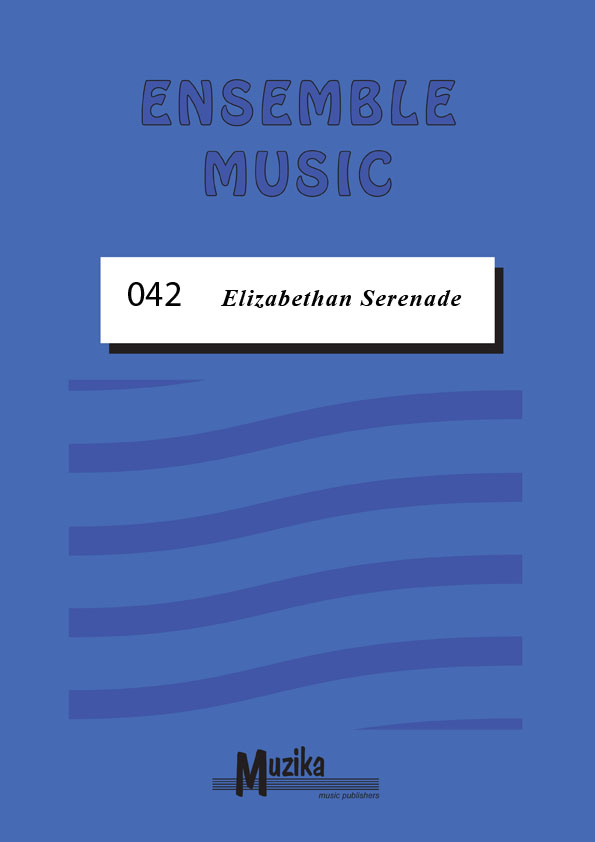Elizabethan Serenade
Buy this item (in stock)
Product ID: MZ3 EM042
By Ronald Binge
Publisher:
Muzika
Arranger:
Van de Goot
Series:
Ensemble Music
Line Up:
Flexible Instrumentation
Duration:
4:00
Level: 3
Set & Score
This item is in stock
Instrumentation
1 Score
1 Piano
4 Part 1 in C treble clef
2 Part 1 in Bb treble clef
4 Part 2 in C treble clef
4 Part 2 in Bb treble clef
6 Part 3 in C treble clef
4 Part 3 in Bb treble clef
1 Part 3 in Eb treble clef
1 Part 3 in F treble clef
3 Part 4 in C alto clef
2 Part 4 in Bb low treble clef
1 Part 4 in Bb high treble clef
2 Part 4 in Eb treble clef
2 Part 4 in F treble clef
2 Part 5 in C bass clef
2 Part 5 in Bb bass clef
Reviews and rating
No review available, be the first to write one!

Composer
Ronald Binge (1910-1979)

Ronald Binge (15 July 1910 – 6 September 1979) was a British composer and arranger of light music.
Binge was interested in the technicalities of composition and was most famous as the inventor of the "cascading strings" effect which is the signature sound of the Mantovani orchestra, much used in their arrangements of popular music. It was originally created to capture the essence of the echo properties of a building such as a cathedral, although it later became particularly associated with easy listening music genre.
His best known composition is probably Elizabethan Serenade (1951), which was used by the British Broadcasting Corporation as the theme for the popular 1950s series, "Music Tapestry," and as the play-out for the British Forces Network radio station, for which he won an Ivor Novello Award. It was later turned into a vocal version called Where the Gentle Avon Flows, with lyrics by the poet Christopher Hassall. Binge is also known for Sailing By (1963), the BBC Radio 4 Shipping Forecast theme. Other well-known pieces include Miss Melanie, Like Old Times, The Watermill (1958) for oboe and strings, and his Concerto for Alto Saxophone in E-flat major (1956). His largest, longest and most ambitious work is the four-movement Symphony in C ("Saturday Symphony") which was written during his retirement c. 1970 and performed in England and Germany.
Less well-known is a piano piece known as Vice Versa, a musical palindrome which was not only a front-to-back palindrome, but also exploited the two staves used for writing for piano. The music reads the same, whatever way it is turned. He later extended this theme, composing a piece known as Upside/Downside for his son, who was learning to play the recorder at Downside School. This musical palindrome was for piano, recorder and cello and again was universally reversible - two players could therefore play from the same sheet of music reading from opposite ends.
More info about the composer...



 Click above to view samples
Click above to view samples
